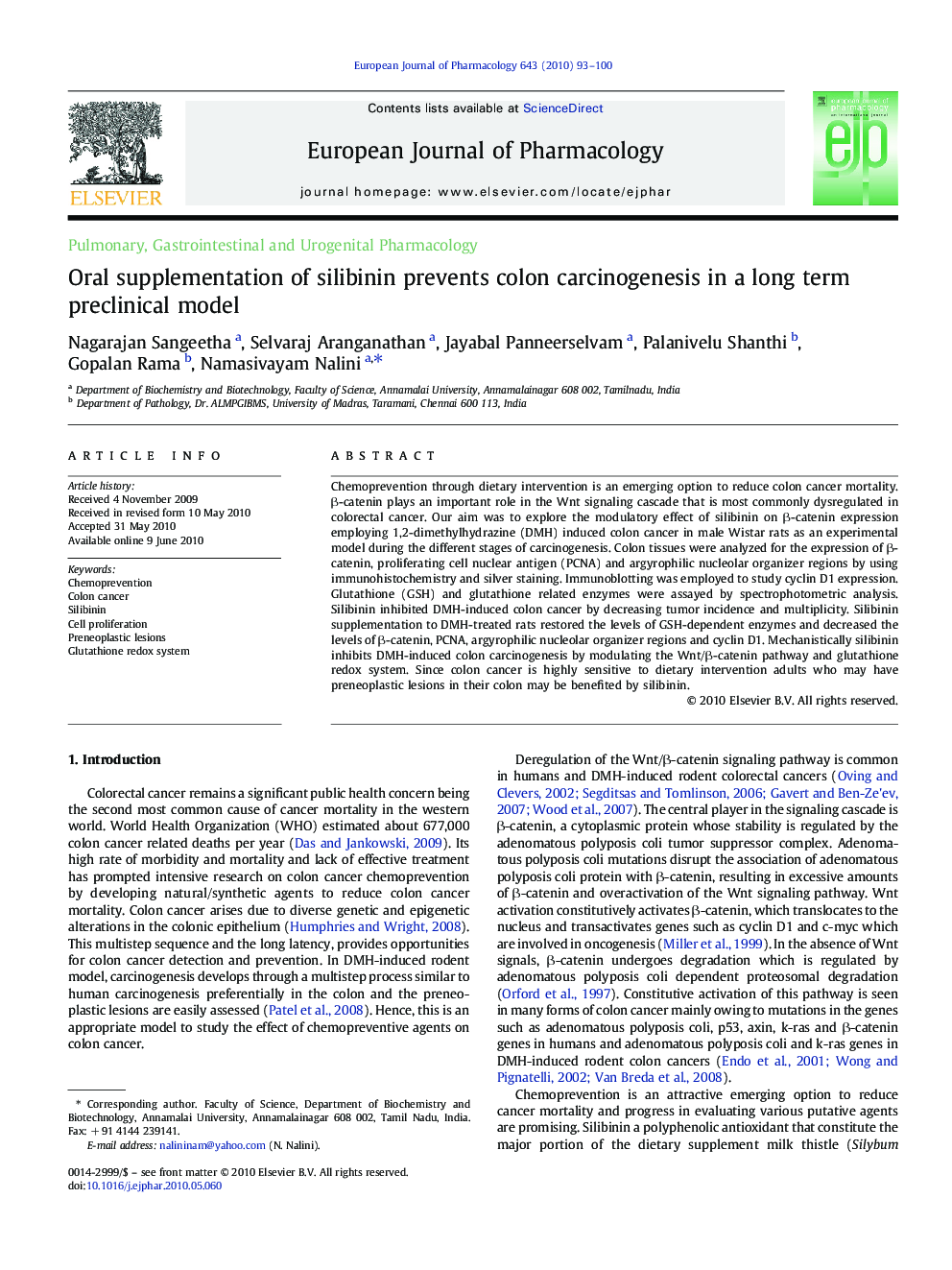| Article ID | Journal | Published Year | Pages | File Type |
|---|---|---|---|---|
| 2533409 | European Journal of Pharmacology | 2010 | 8 Pages |
Chemoprevention through dietary intervention is an emerging option to reduce colon cancer mortality. β-catenin plays an important role in the Wnt signaling cascade that is most commonly dysregulated in colorectal cancer. Our aim was to explore the modulatory effect of silibinin on β-catenin expression employing 1,2-dimethylhydrazine (DMH) induced colon cancer in male Wistar rats as an experimental model during the different stages of carcinogenesis. Colon tissues were analyzed for the expression of β-catenin, proliferating cell nuclear antigen (PCNA) and argyrophilic nucleolar organizer regions by using immunohistochemistry and silver staining. Immunoblotting was employed to study cyclin D1 expression. Glutathione (GSH) and glutathione related enzymes were assayed by spectrophotometric analysis. Silibinin inhibited DMH-induced colon cancer by decreasing tumor incidence and multiplicity. Silibinin supplementation to DMH-treated rats restored the levels of GSH-dependent enzymes and decreased the levels of β-catenin, PCNA, argyrophilic nucleolar organizer regions and cyclin D1. Mechanistically silibinin inhibits DMH-induced colon carcinogenesis by modulating the Wnt/β-catenin pathway and glutathione redox system. Since colon cancer is highly sensitive to dietary intervention adults who may have preneoplastic lesions in their colon may be benefited by silibinin.
